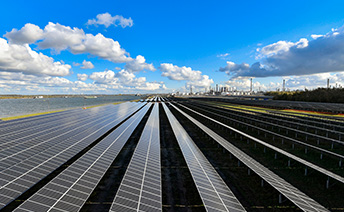Executive summary
The world needs urgent action to achieve net-zero emissions by 2050 in support of the more ambitious temperature goal of the UN Paris Agreement: to limit the rise in average global temperature this century to 1.5°C above pre-industrial levels.
Our strategy, called Powering Progress, is designed to generate shareholder value while meeting our target to become a net-zero emissions energy business by 2050.[1] We are transforming our business, providing more low-carbon energy solutions, and working with our customers and others to help them reduce their emissions, sector by sector.[2]
We believe that government policy is an essential driver and enabler of the energy transition. We advocate robust policies, legislation and regulations that we see as critical for society to achieve net-zero emissions, and for Shell to deliver more low-carbon energy solutions.
This is our first Climate and Energy Transition Lobbying Report. It is another step forward on our journey to increase transparency around our advocacy. It builds on the progress we have made since 2019 in reporting on the key industry associations we are members of, and in providing examples of our advocacy on our website.
This report provides details about our direct lobbying in relation to climate and energy transition policy, legislation and regulation. It also provides information about our advocacy through coalitions and industry associations.
In 2022, there were some important developments in climate and energy transition policies at an international level, as well as at a country and regional level. We believe that our advocacy has contributed to these outcomes. However, the world urgently needs to transform the global energy system while providing secure and affordable energy. Policy frameworks need to continue to evolve rapidly to enable a faster transition.
This is the fifth consecutive year that we have reported on our memberships of industry associations. We have reviewed the policies and advocacy of 39 key associations against our global climate and energy transition policy positions. We have found:
- Alignment with 29 associations
- Some misalignment with 10 associations
- No material misalignment
We have considered our next steps for the associations where we have identified some misalignment and have decided to remain members of these associations at the current time. This is because there is evidence that their positions are changing, and we believe we can have a greater impact within the associations than outside them, through regular engagement. We also see a broader value in our memberships, for example to support safety regulations, the sharing of industry best practices, or to support the policies required for specific technologies needed for the transition, such as carbon capture and storage.
We will continue to engage with these organisations in areas where we have different views, and be transparent about our differences. We plan to provide an update on associations where we found some misalignment next year. In some cases where we have different positions to our industry associations, we have lobbied governments directly and through coalitions to support our positions.
Looking ahead, unprecedented collaboration between consumers, governments, companies and investors remains vital to achieving net-zero emissions.
We will continue to advocate the development of effective climate and energy transition policy frameworks directly to governments, and through coalitions and industry associations. In particular, we will encourage industry associations to adopt policies that support net-zero emissions. We will also continue to engage with upstream industry associations around the direct regulation of methane emissions and the ending of routine flaring by 2030 or sooner. We will continue to provide updates about our advocacy on our website.
[1] https://www.shell.com/powering-progress.html
[2] References to low carbon energy are on a lifecycle basis.









